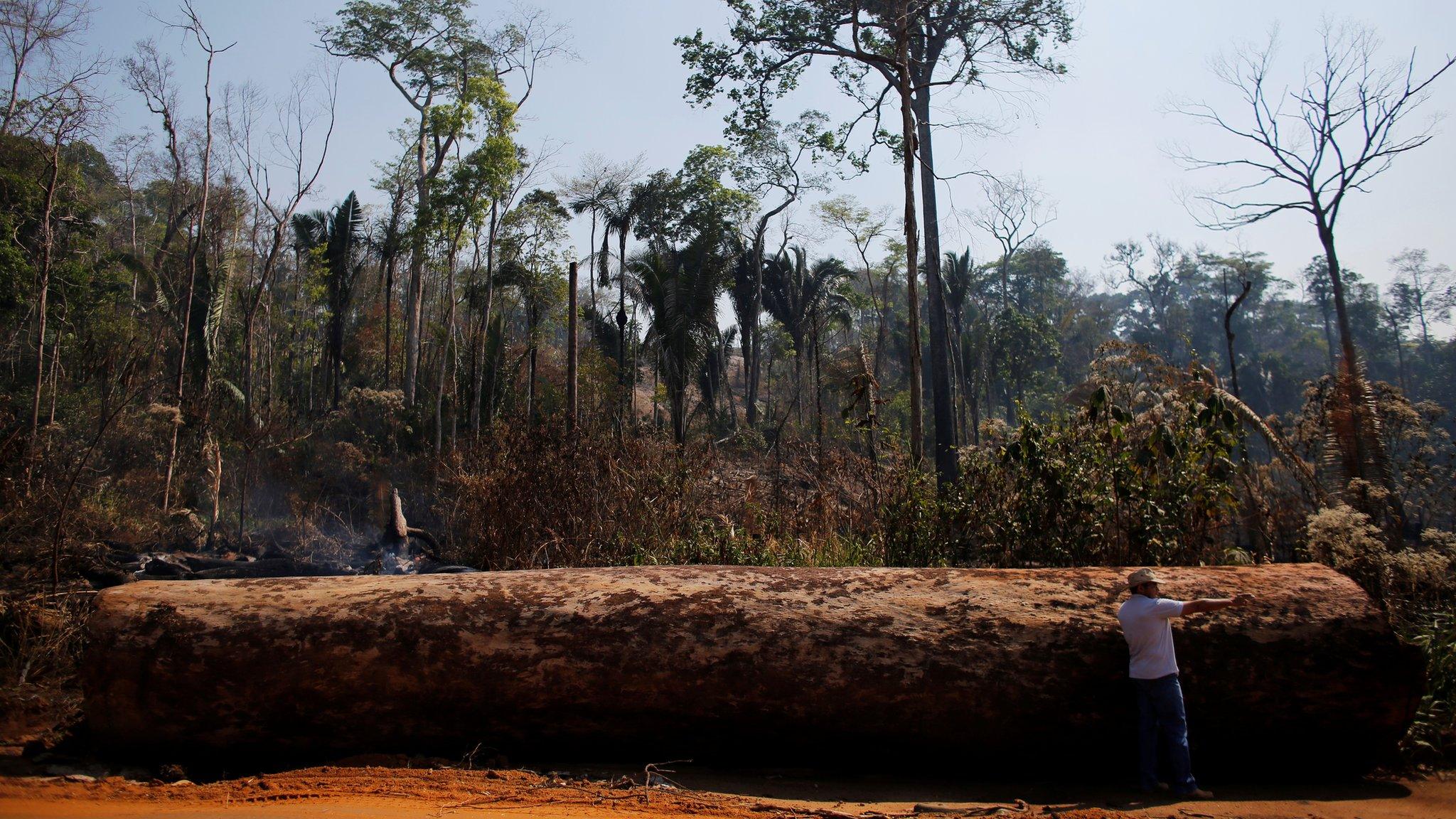Amazon fires: Brazil sends army to help tackle blazes
- Published
Worldwide protests over Brazilian government inaction on Amazon fires
Brazil's leader has ordered the armed forces to fight forest fires in the Amazon, amid international outrage over rising deforestation.
President Jair Bolsonaro deployed soldiers in nature reserves, indigenous lands and border areas beset by fires.
The move is an apparent reversal from Mr Bolsonaro, who has been accused of emboldening miners and loggers.
Other countries had threatened to target Brazil's economy if the nation did not act to stop the fires.
France and Ireland have said they will not ratify a large trade deal with South American nations and Finland's finance minister has called on the EU to consider banning Brazilian beef imports.
In a televised address to the nation on Friday, Mr Bolsonaro said forest fires "exist in the whole world" and "cannot serve as a pretext for possible international sanctions".
Many of the fires are thought to have been started deliberately, with suspicion falling on farmers who may benefit by having more available land.
Mr Bolsonaro has scorned environmental activists and declared staunch support for the clearing of areas of the Amazon for agriculture and mining. Experts and campaigners say his administration has given a green light to rainforest destruction.
Environmental groups held protests in cities across Brazil on Friday to demand action to combat the fires, and protesters gathered outside the Brazilian embassies around the world.
Members of Brazil's indigenous Mura tribe vow to defend their land
The largest rainforest in the world, the Amazon is a vital carbon store that slows down the pace of global warming. It is known as the "lungs of the world" and is home to about three million species of plants and animals, and one million indigenous people.
What are the new measures?
In his televised address, Mr Bolsonaro confirmed that he had authorised the armed forces to help fight the fires. "I've learned as a military man to love the Amazon forest and I want to help protect it," he said.
The decree itself was fairly vague in its wording, but specified that the military would be deployed to nature reserves, indigenous lands and border areas in the region.
One campaigner called the forest fires a "vicious cycle"
The deployment of soldiers would be left down to regional governors who can request "preventive action... against environmental crimes" and ask the army to "survey and combat fire outbreaks", it said.
Defence Minister Fernando Azevedo e Silva said in a press conference on Saturday that 700 members of the armed forces would initially be sent to the Amazon region. Up to 28bn Brazilian reais ($6.8bn; £5.5bn) would be made available to put out the fires, he said.
What else have leaders said?
Mr Bolsonaro has faced deepening international criticism for his handling of the fires. German Chancellor Angela Merkel, French President Emmanuel Macron and UK Prime Minister Boris Johnson have called the fires an international crisis.
Ms Merkel called it an "acute emergency" and Mr Macron tweeted: "Our house is burning." Both said the issue must be discussed at this weekend's G7 summit in Biarritz.
Speaking in Biarritz on Saturday, European Council President Donald Tusk said the EU "stands by the EU-Mercosur agreement but it is hard to imagine a process of ratification as long as the Brazilian government allows for the destruction" of the Amazon.
UN Secretary-General Antonio Guterres said on Thursday: "In the midst of the global climate crisis, we cannot afford more damage to a major source of oxygen and biodiversity. The Amazon must be protected."
US President Donald Trump said that he spoke to President Bolsonaro on Friday evening. "I told him if the United States can help with the Amazon Rainforest fires, we stand ready to assist!" Mr Trump tweeted.
How has Mr Bolsonaro responded?
Brazil's president has hit back at criticism and accused leaders such as Mr Macron of meddling for "political gain".
Earlier this week, he even suggested that non-governmental organisations had started fires in the rainforest - despite admitting he had no evidence for this claim.
President Bolsonaro accuses NGOs of starting Amazon wildfires
In his Friday television address, Mr Bolsonaro criticised those spreading "baseless information" about Brazil's commitment to preservation, insisting the country had "modern legislation" to protect most of its forest.
"We need to bear in mind that more than 20 million Brazilians live in that region," he said. "We need to give opportunity for development. It's not only about protection." He also described the wildfires as within an "average" range for the past 15 years.
"We are in a traditionally hot and dry season, with high winds, when every year we have wildfires," he said. "In hotter years, wildfires are more common."
How bad are the fires?
Satellite data published by the National Institute for Space Research (Inpe) has shown an increase of 85% this year in fires across Brazil, external, most of them in the Amazon region. It is the highest number of fires since 2010.
Mr Bolsonaro has brushed off the latest data, arguing that it was the season of the "queimada", when farmers burn land to clear it before planting. But Inpe has noted that the number of fires is not in line with those normally reported during the dry season.

Wildfires often occur in the dry season in Brazil but they are also deliberately started in efforts to illegally deforest land for cattle ranching.
Conservationists say Mr Bolsonaro has encouraged loggers and farmers to clear the land. During his campaign, he pledged to limit fines for damaging the rainforest and to weaken the influence of the environmental agency.
US space agency Nasa said this month that overall fire activity across the Amazon basin this year had been close to the average, external.
However, it updated its position on Friday, saying satellite data now showed it was the "most active fire year in that region since 2010", external.
Why the Amazon rainforest helps fight climate change

This article initially stated there was a record number of fires in Brazil this year. After more satellite data was made accessible, it has been updated to reflect the fact the fires are instead the worst since 2010.
- Published30 August 2019
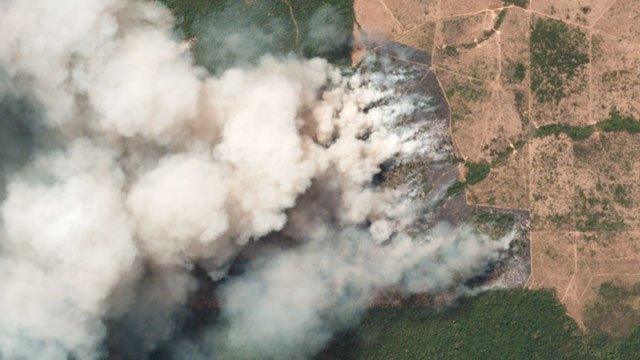
- Published28 August 2019
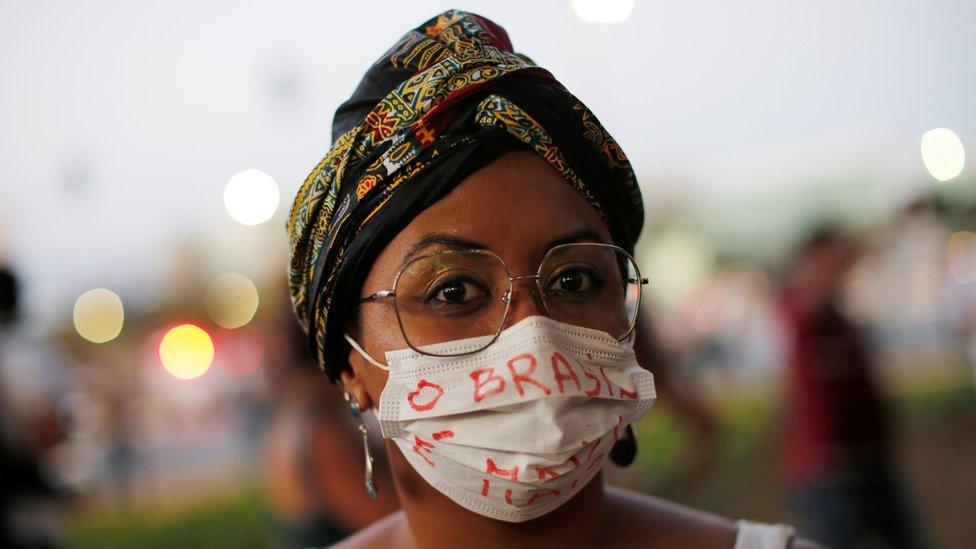
- Published21 August 2019
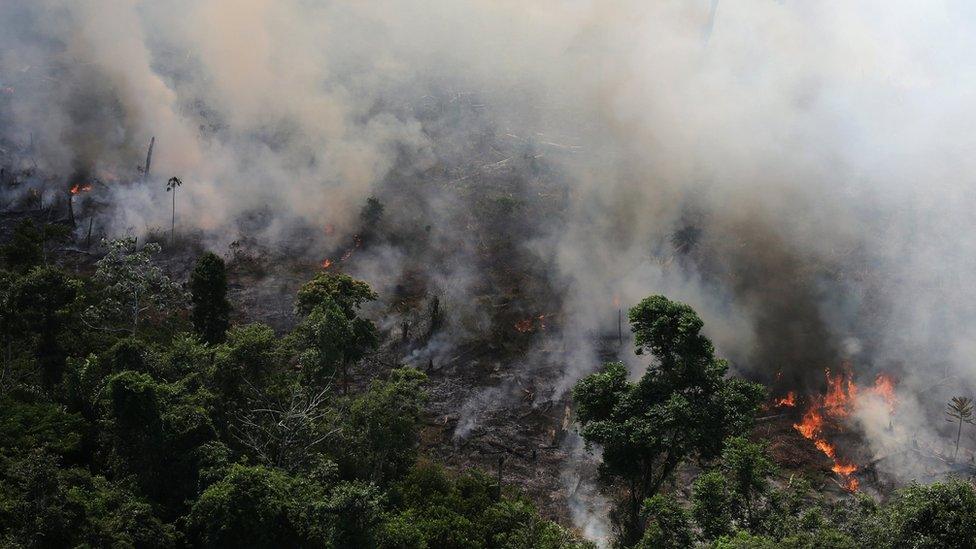
- Published23 August 2019
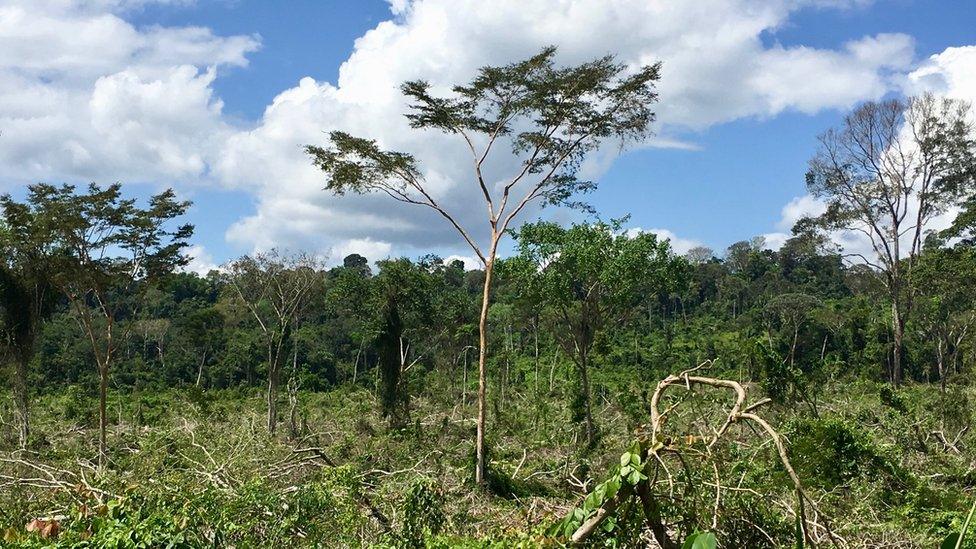
- Published2 August 2019
